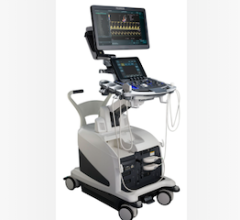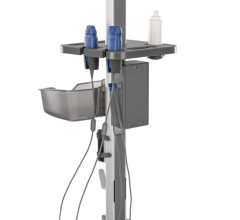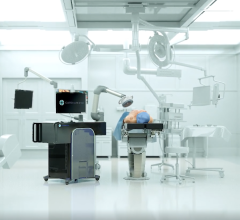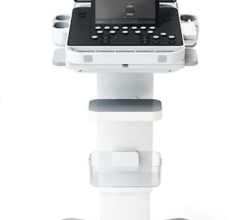January 12, 2012 – Geoffrey A. Rose, M.D., FASE, FACC, was recently appointed chairperson of the Intersocietal Accreditation Commission (IAC). Headquartered in Ellicott City, Md., the IAC is a national, nonprofit organization in operation to evaluate and accredit medical facilities.
Prior to his new leadership role within the IAC, Rose, of Charlotte, N.C., served on the Intersocietal Commission for the Accreditation of Echocardiography Laboratories (ICAEL)’s Board of Directors since 2007, including a presidential term. He is a representative of the American Society of Echocardiography (ASE).
Rose received his cardiology training –– which included two years of subspecialty training in echocardiography –– at the Massachusetts General Hospital in Boston, Mass. Rose is the Director of Imaging for the Sanger Heart & Vascular Institute (SHVI) in Charlotte, N.C., and is a Clinical Professor of Medicine at the University of North Carolina at Chapel Hill. Active in the ICAEL for the past several years as an application reviewer, Rose led the ICAEL accreditation process for SHVI, making it one of the first 15 laboratories in the nation to become so accredited. In addition being a fellow of the ASE, he is a fellow of the American College of Cardiology (ACC), serving on Appropriate Utilization Criteria (AUC) subcommittees.
Reflecting on his goals as he begins his term as IAC Chairperson, Rose said, “Receiving quality care is an inherent expectation of our health care system. On this point I believe there is little debate. The difficulty lies in creating mechanisms that are effective in helping to achieve this end but yet are practical to implement in the complex and diverse settings where care is delivered.”
He added, “IAC has always been committed to developing and promoting standards that designate specific aspects of quality care. Our goal now is to create tools and resources that foster the application of these standards in the day-to-day delivery of care.”
Working in collaboration with more than 500 volunteer physicians and technologists who serve as reviewers, the IAC comprises six member divisions. Each share a common mission: Improving health care through accreditation.
• The Intersocietal Commission for the Accreditation of Vascular Laboratories (ICAVL); provides accreditation for facilities performing vascular testing; www.icavl.org
• The Intersocietal Commission for the Accreditation of Echocardiography Laboratories (ICAEL); provides accreditation for facilities performing echocardiography; www.icael.org
• The Intersocietal Commission for the Accreditation of Nuclear Medicine Laboratories (ICANL); provides accreditation for facilities performing nuclear cardiology, general nuclear medicine and/or positron emission tomography (PET) imaging; www.icanl.org
• The Intersocietal Commission for the Accreditation of Magnetic Resonance Laboratories (ICAMRL); provides accreditation for facilities performing magnetic resonance imaging (MRI); www.icamrl.org
• The Intersocietal Commission for the Accreditation of Computed Tomography Laboratories (ICACTL); provides accreditation for facilities performing computed tomography (CT) imaging; www.icactl.org
• The Intersocietal Commission for the Accreditation of Carotid Stenting Facilities (ICACSF); provides accreditation for facilities performing carotid stenting procedures; www.icacsf.org
The leadership of each division consists of physicians and technologists who were nominated by the multiple professional societies that support each division.
To date, the IAC accrediting bodies have granted accreditation to more than 10,000 sites throughout the United States, Canada and Puerto Rico. IAC accreditation is widely respected within the medical community, as illustrated by the support of the national medical societies. Varying per modality, IAC accreditation is required in some states and regions by the Centers for Medicare and Medicaid Services (CMS) and by numerous private insurers. However, patients should remain vigilant in making sure that their imaging procedures are performed within accredited facilities, because for some it remains a voluntary process.
For more information: www.intersocietal.org


 October 09, 2025
October 09, 2025 








